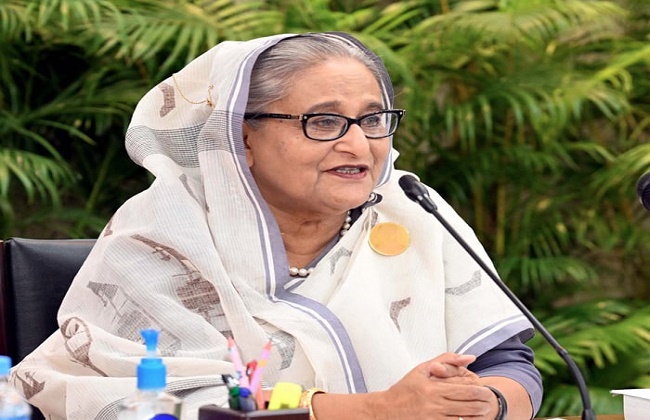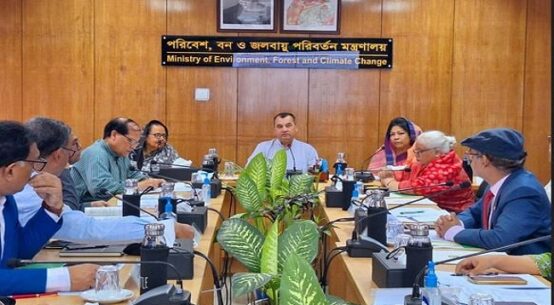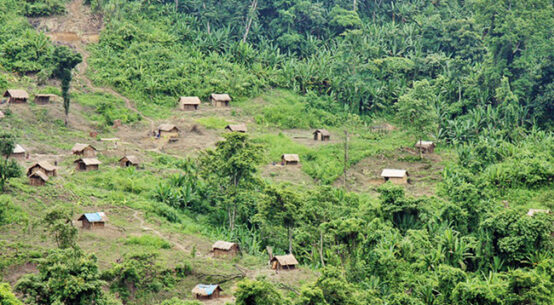
Former State Minister for Foreign Affairs Md Shahriar Alam on Friday said they would take the Bangladesh-India relations to a new height in the next five years as there are new governments in place in the two neighbouring countries with continuity amid new mandate.
“There will be a stock-taking on what we left in September 2022 and we will take the relations to a new height in the next five years,” he said, noting that the expectations and aspirations are sky-high.
Speaking at a roundtable discussion as the chief guest, Shahriar said people have expectations and these expectations emerged as the government led by Prime Minister Sheikh Hasina has proved that it can deliver and things can be achieved.
The daily Bhorer Kagoj hosted the discussion titled “New Governments in Bangladesh and India: A New Beginning to Further Develop the Relations” at its office.
Former foreign secretary Shamsher Mobin Chowdhury, former ambassador Munshi Faiz Ahmad, Executive Director of Centre for Alternatives (CA) Prof Imtiaz Ahmed, Prof Shahab Enam Khan of Jahangirnagar University’s Department of International Relations, President of the Press Club of India Gautam Lahiri, senior Indian journalist Devadeep Purohit, DCAB President Nurul Islam Hasib, among others, joined the event moderated by Bhorer Kagoj Editor Shyamal Dutta.
Talking about the genuine elements in the growing relations including water issue, he said if the water-related problem is not resolved, Bangladesh’s food basket might fall into a risk. “Groundwater or irrigation is not going to help. It is not sustainable environmentally at all.”
Shahriar said water is certainly a big and sensitive issue and Bangladesh deserves its fair share. “I am not going to debate why there is no water in the Teesta. Half of the population of my constituency lives on the bank of the Padma, and I now can drive my car in the middle of the Padma for six months of the year.”
He said this is the only second document in 53 common rivers between Bangladesh and India which was well-argued, well-negotiated and finalised at the secretary level.
“This should not be forgotten,” he said, adding that beginning from another point is that would mean that both countries had failed to respect their primarily agreed document by the two friends.
Recalling earlier discussions, Prime Minister Sheikh Hasina, during her state visit to India in September 2022, reiterated Bangladesh’s long pending request for concluding the interim agreement on the sharing of the waters of the Teesta River, the draft of which was finalised in 2011.
Shahriar said predictable supply of the essential food commodities from India (rice, wheat, sugar, onion, ginger and garlic) may also be discussed during the forthcoming visit.
He said it is good news for 140 crore people in India and 17 crore people in Bangladesh that there is a renewed mandate and two new governments are in place showing continuity.
Referring to Land Boundary Agreement – LBA – and resolving maritime dispute with India, he said the countries would gradually be able to resolve the unresolved issues as complex issues had been resolved.
Shahriar said Bangladesh is a energy-hungry country and there are some game-changer initiatives like getting electricity from Nepal through India on a small-scale.
“The actual expectation is to invest jointly by Bangladesh and India in a big way in Nepal for hydroelectricity. There has been much progress. They agreed in principle.”
“Bangladesh-India relations is now an example in the world,” said former State Minister for Foreign Affairs.
He said there was a discussion on a bilateral visit apart from the recent visit of PM Hasina to India to take part in the oath-taking ceremony of her Indian counterpart.
“The visit is taking place. We are very happy,” Shahriar said, highlighting achievements made over the last 15 years.
He said there was a 33-point joint statement issued during the state visit of prime minister of Bangladesh to India in September 2022 where issues like Comprehensive Economic Partnership Agreement (CEPA), energy cooperation, people to people contacts, broader connectivity and others were mentioned.
Shahriar said the upcoming visit of the prime minister will help advance the relations on those areas.
He hoped that the next meeting of the Joint Rivers Commission (JRC) will be held soon, noting that the 38th meeting of the JRC was held in New Delhi in August, 2022 wherein various matters pertaining to cooperation in water resources sector were discussed.
Joint Rivers Commission (JRC) has been functioning since 1972. It was established with a view to maintain liaison in order to ensure the most effective joint effort in maximising the benefits from common river systems. The JRC is headed by water resources ministers of both the countries.
During the bilateral visit which is likely to take place on June 21-22, the two countries are expected to sign a number of MoUs and agreements and there is an issue of making announcement on some areas of cooperation, according to the Ministry of Foreign Affairs.
“It will be a brief visit (21-22),” Shahriar said, adding that the Awami League will celebrate its 75th founding anniversary on June 23.


